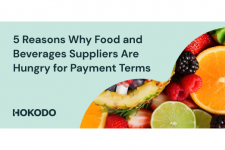Water, water everywhere ...

Some board directors believe 'greening your business' costs money. The more enlightened, however, know that it makes good business sense. And that is exactly what the Food Environmental Efficiency day (FEED) held last month at the University of Nottingham and sponsored by Food Manufacture set out to prove.
Envirowise, the government funded body, which offers free advice to companies on reducing their environmental impact and which arranged the day, claims to generate £10 of savings for every £1 spent. Not a bad return on investment, you might think. But many food and drink companies could reduce their greenhouse gas emissions, effluent and solid waste at no extra cost whatsoever - simply by changing the culture within their businesses.
And that's really what it's all about: identifying the easy wins before moving on to more difficult areas, which may require greater investment before benefits are accrued.
This point was emphatically made by David Symons, director of corporate services at environmental consultancy WSP Environment and Energy, who ran a workshop at FEED on resource efficiency. He said it's all about identifying and focusing on those areas where the biggest savings exist. Surprisingly, these are often not where you think they are.
For example, the biggest impact in, say, reducing your carbon footprint is often obtained by making changes to your upstream raw materials supply. Upstream "embedded carbon" sometimes represents nine times the amount at retail level, claimed Symons: "That, in our opinion, will likely be the same for most manufacturing companies."
He cited another unnamed retailer he had worked with that had identified the biggest potential savings in its 700,000t/year of greenhouse gas emissions from stopping leaks of highly damaging refrigerant gases - gases which have a global warming potential 1,000 times greater than that of carbon dioxide.
"Managing resources are what smart companies are doing," said Envirowise business partnerships director Simon Drury. "We will discuss with you ways of integrating resource efficiency into your existing plans, so we identify real savings."
Take water use, in which the food and drink sectors are huge consumers, using about 700M litres a day. Working closely with Envirowise, the Food and Drink Federation (FDF) recently signed up to an initiative called the Federation House Commitment (FHC) (see Food Manufacture February 2008 p5), which committed the FDF's members to cutting their water consumption based on 2007 levels by 20% by 2020. This is equivalent to saving 140Ml of water per day or £60M/year.
Food industry commitment
So far 21 FDF member companies - mainly large, but also some small firms - representing a combined turnover of £15bn have signed up to the agreement and more are set to follow. As food minister Lord Rooker noted: "Its environmental benefits also have financial savings."
Walkers' Leicester sites, for example, have committed to reducing their water use by 700Ml/year through the use of metering and better staff training. Meanwhile, Mars Snackfood has reduced its water consumption by 40% per tonne of product made between 2006 and 2007. And Cadbury Trebor Bassett has invested £2M in water treatment plant at its Chirk site, which has cut water used in its steam raising boilers by 17Ml/year - equivalent to a saving of £10,000 a year.
Envirowise also plans to roll out the scheme to food and drink companies that are not members of FDF. Envirowise programme director Dr Martin Gibson said: "There are a lot of good companies out there: we want everyone to be good in their water use."
Envirowise will monitor the programme's success and report back on how it is doing against its target. Individual company performance will not be divulged, since it is recognised that some firms will do better than others.
Gibson remarked that different cultures of water use exist in different sectors of the food industry. While bakery and chocolate manufacture, for example, tend to be dry environments, many others are very wet, seeing high water consumption as an essential component of hygiene procedures.
The FHC is part of the FDF's Five-fold Environmental Ambition launched last October to reduce the sector's environmental impact in areas covering carbon dioxide emissions, landfill, packaging reduction and transport, as well as water reduction.
"It's all about being bold and we are being bold in making an improvement to the environment," said FDF sustainability manager David Bellamy. FM
















